Pumpkin seeds, also known as pepitas, are small but mighty superfoods that offer a wide array of health benefits. These nutrient-dense seeds are packed with essential vitamins, minerals, and healthy fats, making them a popular addition to many diets. They are particularly known for being a great source of magnesium, zinc, and omega-3 fatty acids, all of which are vital for maintaining a healthy body. Pumpkin seeds are versatile, easy to incorporate into meals, and can be consumed raw, roasted, or in various recipes.
While these seeds offer numerous health benefits, like supporting heart health, boosting immunity, and improving sleep quality, it's important to remember that moderation is key. Consuming too many pumpkin seeds in one sitting can lead to certain side effects, such as digestive discomfort or excessive calorie intake. Let us explore how many pumpkin seeds are safe to eat daily, potential side effects of overconsumption, and tips for including them in your diet without any negative consequences.
Table of Contents
- Introduction
- How Many Pumpkin Seeds Should You Eat Daily?
- Side Effects of Eating Too Many Pumpkin Seeds
- Who Should Avoid or Limit Pumpkin Seeds?
- How to Safely Include Pumpkin Seeds in Your Diet
- Health Benefits of Pumpkin Seeds in Moderation
- Conclusion
- Frequently Asked Questions (FAQs)
How Many Pumpkin Seeds Should You Eat Daily?
The recommended daily intake of pumpkin seeds can vary depending on your age, sex, activity level, and overall dietary needs. However, general guidelines suggest that a safe and healthy amount is around 1 ounce (about 28 grams) of pumpkin seeds per day, which is roughly one small handful. This amount provides a balanced portion of nutrients without going overboard on calories or fats.
Several factors can influence how many pumpkin seeds are suitable for you on a daily basis:
-
Caloric Needs: Pumpkin seeds are calorie-dense, providing about 150-180 calories per ounce, so they should be eaten in moderation, especially for those watching their calorie intake or aiming for weight loss. If you have higher caloric needs, such as if you’re very active or trying to gain weight, you may be able to consume more.
-
Nutritional Balance: Pumpkin seeds are rich in healthy fats, protein, and fiber. While they are great for adding protein and fiber to your diet, they should not replace other important food groups. It's important to ensure your diet remains well-rounded by consuming other sources of vitamins, minerals, and healthy fats.
-
Digestive Health: Eating too many pumpkin seeds at once can sometimes cause digestive discomfort. If you're not used to consuming high amounts of fiber, it’s best to start with a smaller portion and gradually increase it to avoid bloating or gas.
-
Medical Considerations: If you are managing specific health conditions, such as kidney problems, digestive disorders, or are on blood thinners, you may need to adjust your intake. For example, individuals with kidney stones should be cautious, as pumpkin seeds contain oxalates that may contribute to kidney stone formation when eaten in excess.
In general, sticking to around 1 ounce of pumpkin seeds per day allows you to enjoy their health benefits while keeping your intake balanced and safe. Always remember to listen to your body and consult a healthcare professional if you're unsure about how many pumpkin seeds are right for you, especially if you have specific health concerns.
Side Effects of Eating Too Many Pumpkin Seeds
While pumpkin seeds are packed with nutrients, eating too many of them can lead to some undesirable side effects. Here are the most common ones to keep in mind:
-
Digestive Issues: Bloating, Gas, Constipation
Pumpkin seeds are high in fiber, which is great for digestion when consumed in moderation. However, consuming them in excess can lead to digestive discomfort such as bloating, gas, and constipation. The high fiber content may overwhelm your digestive system, especially if you're not used to a fiber-rich diet. -
Weight Gain Due to High Calorie Content
Pumpkin seeds are calorie-dense due to their high fat content, primarily healthy fats like monounsaturated and polyunsaturated fats. While these fats are beneficial for heart health, consuming large amounts of pumpkin seeds can lead to an increase in daily calorie intake, which may contribute to weight gain over time, especially if not balanced with other foods. -
Potential Allergic Reactions
Although rare, some individuals may experience allergic reactions to pumpkin seeds. Symptoms can include skin rashes, itching, or swelling. In more severe cases, they may trigger anaphylaxis, a life-threatening reaction. If you have a known seed or nut allergy, it's best to avoid pumpkin seeds. -
Effects on Blood Pressure and Blood Thinning
Pumpkin seeds are rich in magnesium, which can help lower blood pressure. While this is generally beneficial, eating large amounts of pumpkin seeds may lead to excessively low blood pressure, particularly in individuals already taking blood pressure medication. Additionally, pumpkin seeds contain compounds that can affect blood thinning, so it’s important for those on blood thinners to be cautious. -
Risk of Kidney Stones from Oxalates
Pumpkin seeds contain oxalates, which, when consumed in large quantities, can contribute to the formation of kidney stones. People who are prone to kidney stones or have a history of them should limit their intake of pumpkin seeds to avoid exacerbating the issue. -
Impact of Rancid or Spoiled Seeds
Like other nuts and seeds, pumpkin seeds can go rancid if not stored properly. Rancid seeds contain harmful compounds that may lead to digestive distress and cause nausea or an upset stomach. It's important to store pumpkin seeds in an airtight container and keep them in a cool, dry place to preserve their freshness.
Who Should Avoid or Limit Pumpkin Seeds?
While pumpkin seeds are generally safe for most people, there are certain groups who should avoid or limit their consumption due to potential health risks or specific conditions.
-
People on Blood Thinners
Pumpkin seeds contain compounds that can have a blood-thinning effect, such as omega-3 fatty acids and magnesium. For people taking blood thinners like warfarin or aspirin, consuming large amounts of pumpkin seeds can interfere with the medication's effectiveness, potentially increasing the risk of bleeding. It's essential for these individuals to consult their healthcare provider before adding pumpkin seeds to their diet. -
Individuals with Digestive Disorders (IBD, Crohn’s, Ulcerative Colitis)
Individuals with digestive disorders such as irritable bowel disease (IBD), Crohn’s disease, or ulcerative colitis should be cautious about eating too many pumpkin seeds. Due to their high fiber content, excessive consumption may irritate the digestive tract, leading to symptoms like bloating, cramping, and diarrhea. It’s best to start with small amounts and monitor any adverse reactions. -
Pregnant and Lactating Women, Infants
While pumpkin seeds are generally safe, pregnant and lactating women should consume them in moderation due to the potential for digestive upset and the high calorie content. Infants should avoid pumpkin seeds altogether, as they can pose a choking hazard or lead to allergic reactions. Always consult with a healthcare professional if you have any concerns about introducing pumpkin seeds into your or your baby’s diet. -
Those with Seed Allergies or Low Blood Pressure
People with allergies to seeds or nuts should avoid pumpkin seeds as they could trigger an allergic reaction. Additionally, since pumpkin seeds can naturally lower blood pressure, individuals with already low blood pressure should avoid excessive consumption to prevent their blood pressure from dropping too low. -
People on Low-Calorie Diets
While pumpkin seeds are highly nutritious, they are also calorie-dense. For those following a low-calorie diet or trying to manage their weight, consuming too many pumpkin seeds can quickly add up in calories, potentially making it harder to stay within their calorie goals. In such cases, it’s important to consume them in moderation to avoid exceeding daily calorie needs.
How to Safely Include Pumpkin Seeds in Your Diet
Including pumpkin seeds in your diet can be a great way to boost your nutritional intake, but like anything, moderation is key. Here are some tips on how to safely enjoy pumpkin seeds without overdoing it:
-
Start Gradually
If you’re new to eating pumpkin seeds, it’s best to start with a small amount and gradually increase the quantity. This helps your digestive system adjust to the fiber content, reducing the risk of discomfort such as bloating or gas. A handful (about 1 ounce or 28 grams) per day is a good starting point. -
Hydrate Properly
Pumpkin seeds are rich in fiber, which aids digestion, but to ensure that the fiber works effectively, it’s important to drink plenty of water throughout the day. Proper hydration will help prevent any digestive issues and ensure smooth bowel movements. -
Choose Raw or Roasted Seeds
While both raw and roasted pumpkin seeds offer nutritional benefits, roasted seeds may lose some nutrients due to the heat. Raw pumpkin seeds are often considered the healthiest option, but if you prefer the taste of roasted seeds, opt for lightly roasted ones without added salt or sugar to keep them as healthy as possible. -
Incorporate Into Meals
Adding pumpkin seeds to your meals is an easy way to get their benefits. You can sprinkle them over salads, yogurt, or oatmeal, or blend them into smoothies for an extra crunch. You can also add them to baked goods, such as muffins and bread, for added texture and nutritional value. -
Avoid Overconsumption
While pumpkin seeds are packed with healthy fats, protein, and fiber, they are also calorie-dense. Eating too many seeds at once can lead to excessive calorie intake, which may contribute to weight gain. Stick to the recommended serving size (about 1 ounce or 28 grams) to reap the benefits without going overboard. -
Store Properly to Prevent Rancidity
To avoid the seeds becoming rancid, store them in an airtight container in a cool, dry place. If you buy seeds in bulk, it’s best to keep them in the refrigerator to maintain freshness. Rancid seeds can have a bitter taste and may not provide the same health benefits as fresh seeds.
Health Benefits of Pumpkin Seeds in Moderation
Pumpkin seeds, also known as pepitas, are a highly nutritious snack when consumed in moderation. Here are some of the key health benefits they provide:
-
Antioxidant Properties and Immune Support
Pumpkin seeds are rich in antioxidants such as vitamin E, zinc, and carotenoids, which help protect the body from oxidative stress and free radical damage. These antioxidants play a vital role in supporting the immune system, improving skin health, and slowing down the aging process. Regular consumption of pumpkin seeds can strengthen your body’s defenses and help fight off infections. -
Heart and Liver Health Benefits
The healthy fats found in pumpkin seeds, particularly omega-3 and omega-6 fatty acids, contribute to heart health by lowering cholesterol levels and reducing inflammation. These fats can help prevent cardiovascular disease and promote healthy blood circulation. Additionally, pumpkin seeds are rich in magnesium, which supports proper heart function and reduces the risk of hypertension. The high zinc content in pumpkin seeds also supports liver health, aiding in detoxification and reducing the risk of liver disease. -
Role in Prostate Health and Sleep Improvement
Pumpkin seeds are especially beneficial for men’s health, particularly in supporting prostate health. Zinc, a key mineral found in pumpkin seeds, has been linked to a reduction in prostate enlargement, a common issue in older men. Regular consumption of pumpkin seeds may help improve prostate function and reduce the risk of prostate-related issues. Furthermore, pumpkin seeds are a good source of tryptophan, an amino acid that helps the body produce serotonin and melatonin. These compounds promote relaxation and improve sleep quality, making pumpkin seeds a great natural remedy for insomnia and poor sleep. -
Supports Bone Health
Pumpkin seeds are an excellent source of magnesium, which is essential for maintaining strong bones. Magnesium helps in the absorption of calcium, and together with other nutrients like phosphorus and zinc found in pumpkin seeds, they contribute to bone density and prevent conditions like osteoporosis. -
Supports Healthy Blood Sugar Levels
Research suggests that pumpkin seeds can help regulate blood sugar levels, making them an excellent snack for people with type 2 diabetes or those at risk of developing the condition. The high fiber content in pumpkin seeds helps slow down the absorption of sugars, which prevents sudden spikes in blood glucose levels. -
Improves Digestion
The fiber content in pumpkin seeds aids digestion by promoting regular bowel movements and preventing constipation. Fiber also helps in maintaining a healthy gut microbiome by promoting the growth of beneficial bacteria, which is essential for optimal digestion and nutrient absorption.
Health Benefits of Pumpkin Seeds in Moderation
Pumpkin seeds, when consumed in moderation, offer a range of health benefits that can contribute to your overall well-being. They are rich in antioxidants, particularly vitamin E, which helps to fight free radicals and reduce oxidative stress in the body. This can lead to better immune function and a decreased risk of chronic diseases. Pumpkin seeds are also a great source of magnesium, which plays a crucial role in muscle and nerve function, as well as bone health. Additionally, they contain zinc, which is essential for immune support and maintaining healthy skin.
When it comes to heart health, pumpkin seeds are packed with healthy fats, including omega-3 fatty acids, which help to reduce inflammation and promote healthy cholesterol levels. Their high fiber content also supports digestive health, improving bowel regularity and gut function. In addition, pumpkin seeds have been linked to improved prostate health, with some studies suggesting that they may help reduce the symptoms of benign prostatic hyperplasia (BPH). They also contain tryptophan, an amino acid that promotes the production of serotonin, which can help improve sleep quality. By consuming pumpkin seeds in moderation, you can enjoy these health benefits while avoiding potential side effects from overconsumption.
Conclusion
Pumpkin seeds are a highly nutritious snack packed with essential vitamins, minerals, healthy fats, and antioxidants. When consumed in moderation, they offer numerous health benefits, such as supporting heart health, boosting immunity, aiding digestion, and promoting better sleep. However, it is important to avoid excessive consumption to prevent digestive discomfort and other side effects. For the best quality pumpkin seeds, Krishival offers a premium selection that ensures freshness and nutritional value, making it easier to include this superfood in your daily diet without the risks of overconsumption.
Frequently Asked Questions (FAQs)
-
Can eating too many pumpkin seeds cause digestive problems?
Yes, consuming too many pumpkin seeds can lead to digestive issues such as bloating, gas, and constipation due to their high fiber content. It's important to start with small servings and gradually increase intake to allow your digestive system to adjust. -
What is the ideal daily amount of pumpkin seeds to eat?
The recommended daily intake of pumpkin seeds is about 1 ounce (28 grams), which is roughly a small handful. This amount provides a good balance of nutrients without exceeding the safe limits for calorie and fiber consumption. -
Are pumpkin seeds safe for people with blood thinning medication?
Pumpkin seeds contain vitamin K, which can interfere with blood thinning medications like warfarin. If you're on blood thinners, it’s best to consult your doctor before adding pumpkin seeds to your diet to ensure they won’t affect your treatment plan. -
Can pumpkin seeds cause allergic reactions?
While rare, some people may experience allergic reactions to pumpkin seeds, especially if they have a known seed allergy. Symptoms can include itching, swelling, or difficulty breathing. If you're allergic to seeds, avoid consuming pumpkin seeds and consult a doctor. -
Do pumpkin seeds help with weight loss or cause weight gain?
Pumpkin seeds are nutrient-dense and high in calories, so overconsumption may lead to weight gain if not monitored. However, in moderation, they can aid in weight loss by providing a healthy, filling snack that helps control hunger and boosts metabolism due to their high protein and fiber content. -
Is it safe to eat pumpkin seeds raw or should they be roasted?
Both raw and roasted pumpkin seeds are safe to eat. However, roasting may reduce some of the nutritional content, particularly antioxidants. Raw seeds provide the most nutrients, but roasted seeds are often more flavorful and easier to digest. -
Can pumpkin seeds cause kidney stones?
Pumpkin seeds contain oxalates, compounds that can contribute to the formation of kidney stones in susceptible individuals. If you have a history of kidney stones, it is advisable to limit your intake of pumpkin seeds or consult a healthcare provider for personalized advice. -
Should children eat whole pumpkin seeds?
Whole pumpkin seeds can be a choking hazard for young children, especially those under 5. It's best to grind or chop pumpkin seeds into smaller pieces or serve them in forms like pumpkin seed butter to ensure they're safe for children. -
How should pumpkin seeds be stored to avoid spoilage?
To keep pumpkin seeds fresh and prevent rancidity, store them in an airtight container in a cool, dry place. You can also refrigerate or freeze them to extend their shelf life, especially if you buy in bulk. -
Are pumpkin seeds beneficial for sleep and prostate health?
Yes, pumpkin seeds are rich in tryptophan, an amino acid that helps improve sleep by boosting serotonin production. Additionally, they have been linked to better prostate health due to their high zinc content, which supports prostate function and may reduce symptoms of benign prostatic hyperplasia (BPH).


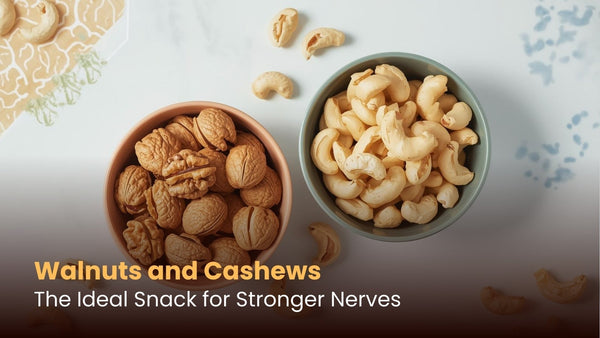

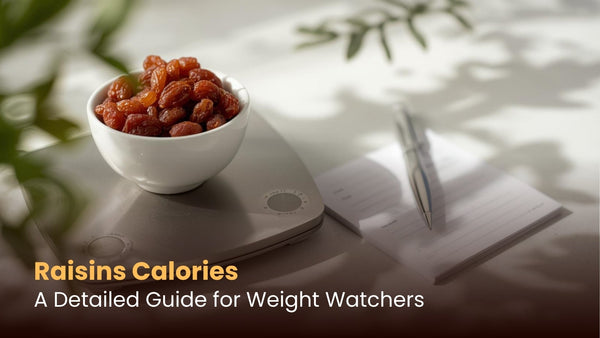
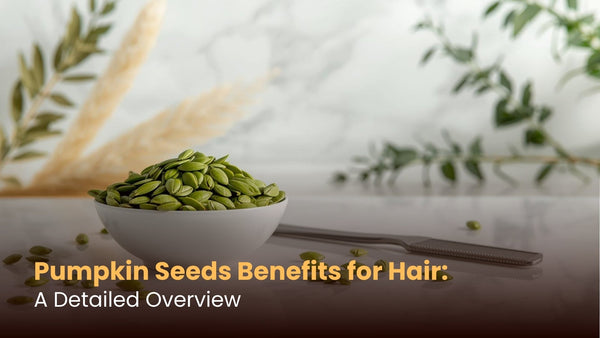
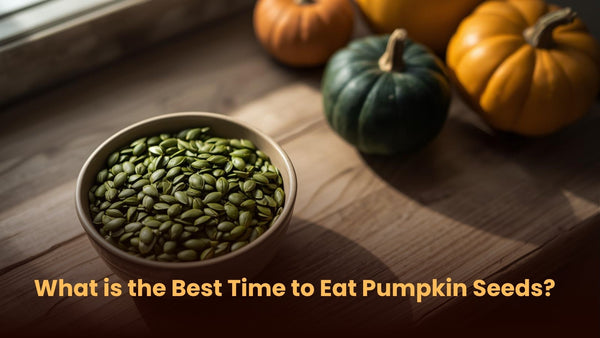

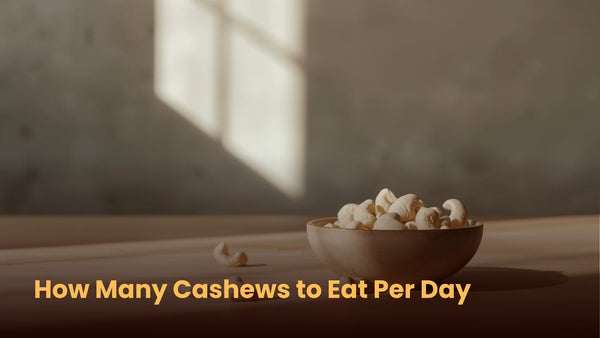
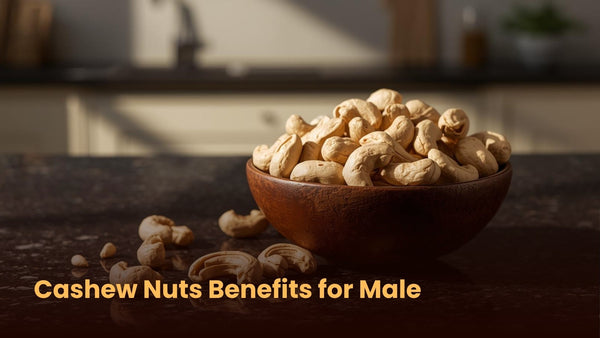
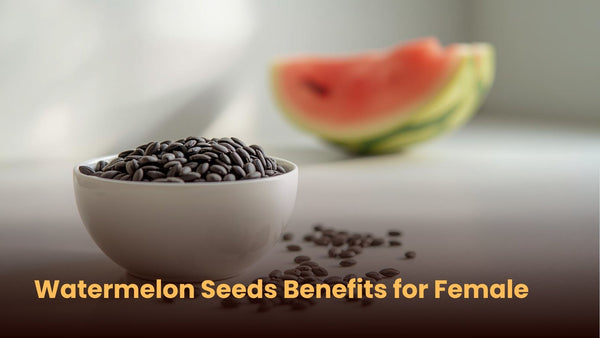
Share Your Thoughts